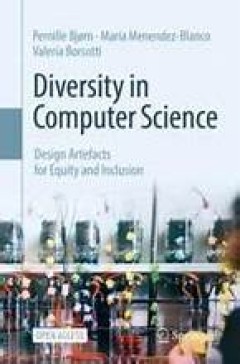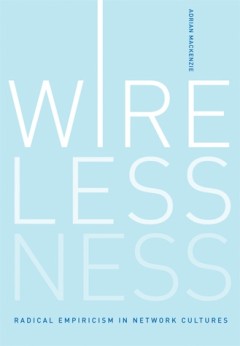Filter by

Resourceful Civil Society
This open access book examines how civil society organizations in Poland, Russia, and Sweden (re)act to transformations of opportunities and limitations in access to various forms of resources. The volume’s contributions discuss the constraints associated with different types of resources as well as organizations’ capacities to generate resources—or compensate for their lack—as they neg…
- Edition
- -
- ISBN/ISSN
- 978-3-030-99007-7
- Collation
- -
- Series Title
- -
- Call Number
- -

From Digital Twins to Digital Selves and Beyond
This open access book aims at deepening the understanding of the relation between cyber-physical systems (CPSs) as socio-technical systems and their digital representations with intertwined artificial intelligence (AI). The authors describe why it is crucial for digital selves to be able to develop emotional behavior and why a humanity-inspired AI is necessary so that humans and humanoids can c…
- Edition
- 1
- ISBN/ISSN
- -
- Collation
- -
- Series Title
- -
- Call Number
- XVIII, 127

Ethics of Artificial Intelligence: Case Studies and Options for Addressing Et…
This open access collection of AI ethics case studies is the first book to present real-life case studies combined with commentaries and strategies for overcoming ethical challenges. Case studies are one of the best ways to learn about ethical dilemmas and to achieve insights into various complexities and stakeholder perspectives. Given the omnipresence of AI ethics in academic, policy and medi…
- Edition
- 1
- ISBN/ISSN
- 978-3-031-17040-9
- Collation
- -
- Series Title
- SpringerBriefs in Research and Innovation Governance
- Call Number
- XII, 116

Diversity in Computer Science
This is an open access book that covers the complete set of experiences and results of the FemTech.dk research which we have had conducted between 2016-2021 – from initiate idea to societal communication. Diversity in Computer Science: Design Artefacts for Equity and Inclusion presents and documents the principles, results, and learnings behind the research initiative FemTech.dk, which was …
- Edition
- 1
- ISBN/ISSN
- 978-3-031-13314-5
- Collation
- -
- Series Title
- -
- Call Number
- XIX, 122

Reading Heidegger's "Black notebooks 1931--1941"
Heidegger scholars consider the philosopher's recently published notebooks, including the issues of Heidegger's Nazism and anti-Semitism.OCLC-licensed vendor bibliographic record.
- Edition
- -
- ISBN/ISSN
- 9780262334631
- Collation
- 1 online resource (xiv, 361 pages)
- Series Title
- -
- Call Number
- -

Updating to remain the same :habitual new media
What it means when media moves from the new to the habitual -- when our bodies become archives of supposedly obsolescent media, streaming, updating, sharing, saving.OCLC-licensed vendor bibliographic record.
- Edition
- -
- ISBN/ISSN
- 9780262333771
- Collation
- 1 online resource
- Series Title
- -
- Call Number
- -

New tendencies :art at the threshold of the information revolution (1961-1978)
An account of a major international art movement originating in the former Yugoslavia in the 1960s, which anticipated key aspects of information aesthetics.OCLC-licensed vendor bibliographic record.
- Edition
- -
- ISBN/ISSN
- 9780262331913
- Collation
- 1 online resource (x, 395 pages).
- Series Title
- -
- Call Number
- -

Frontiers : histories of civil society and nature
In Frontiers, Michael Redclift examines the relationship between nature and society in frontier areas--contested zones in which rival versions of civil society vie with one another, often over the definition and management of nature itself. Drawing on his own fieldwork and extensive archival research, Redclift presents five cases in which civil societies emerged in frontier areas either to mana…
- Edition
- -
- ISBN/ISSN
- 9780262282185
- Collation
- 1 online resource (x, 237 pages) :illustrations, map
- Series Title
- -
- Call Number
- 333 RED f

Wirelessness: Radical Empiricism in Network Cultures
This title provides an account of the sensations associated with being entangled with wireless technologies that draws on the philosophical techniques of William James's radical empiricism.OCLC-licensed vendor bibliographic record.
- Edition
- -
- ISBN/ISSN
- 9780262289597
- Collation
- 1 online resource (255 pages) :illustrations, maps
- Series Title
- -
- Call Number
- -

Evil media
A philosophical manual of media power for the network age."Evil Media develops a philosophy of media power that extends the concept of media beyond its tried and trusted use in the games of meaning, symbolism, and truth. It addresses the gray zones in which media exist as corporate work systems, algorithms and data structures, twenty-first century self-improvement manuals, and pharmaceutical te…
- Edition
- -
- ISBN/ISSN
- 9780262305327
- Collation
- 1 online resource (viii, 235 pages)
- Series Title
- -
- Call Number
- -
 Computer Science, Information & General Works
Computer Science, Information & General Works  Philosophy & Psychology
Philosophy & Psychology  Religion
Religion  Social Sciences
Social Sciences  Language
Language  Pure Science
Pure Science  Applied Sciences
Applied Sciences  Art & Recreation
Art & Recreation  Literature
Literature  History & Geography
History & Geography